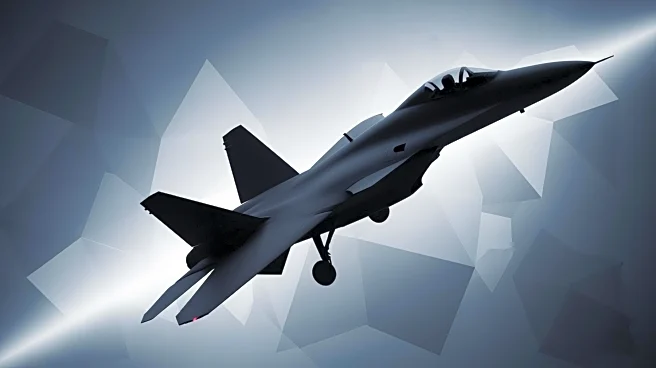What's Happening?
The Trump administration is considering Saudi Arabia's request to purchase up to 48 F-35 fighter jets, a deal that has cleared a key Pentagon hurdle. This potential multi-billion-dollar agreement comes
ahead of Crown Prince Mohammed bin Salman's visit to the US. The deal reflects ongoing US-Saudi defense cooperation and strategic alignment. Meanwhile, President Trump has expressed reservations about military action in Venezuela, fearing it may not compel President Nicolás Maduro to step down. Additionally, experts warn that resuming full nuclear weapons tests could undermine nonproliferation efforts and empower adversaries.
Why It's Important?
The advancement of Saudi Arabia's F-35 purchase request highlights the strategic importance of US-Saudi defense relations. The deal could enhance Saudi Arabia's military capabilities and strengthen bilateral ties. However, it also raises concerns about regional security dynamics and the potential for increased arms proliferation. President Trump's reservations about military action in Venezuela reflect the complexities of US foreign policy in Latin America. The debate over nuclear weapons testing underscores the challenges of balancing national security interests with global nonproliferation goals.
What's Next?
The potential F-35 deal with Saudi Arabia will likely face scrutiny from US lawmakers and international observers, given its implications for regional security. The Trump administration's approach to Venezuela remains uncertain, with ongoing deliberations about the best course of action. The discussion around nuclear weapons testing may lead to policy reviews and diplomatic negotiations to address nonproliferation concerns. As these developments unfold, the US will need to navigate complex geopolitical landscapes and balance strategic interests with ethical considerations.
Beyond the Headlines
The F-35 deal and nuclear testing debate highlight broader themes in US defense policy, including the role of advanced technology and the impact of military decisions on global stability. The US's strategic partnerships and foreign policy decisions are increasingly influenced by technological advancements and geopolitical shifts. These developments also raise ethical questions about arms sales and the responsibilities of major powers in maintaining international peace and security.








